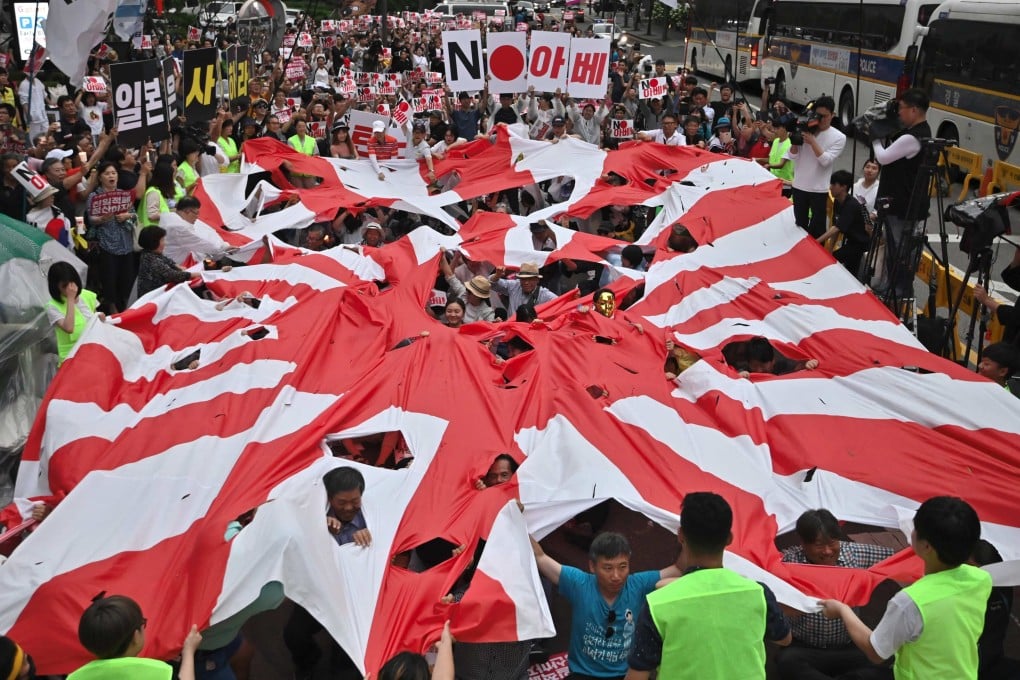Will a Japanese memorial to Chinese victims of wartime forced labour further anger South Korea?
- The monument at a Nagasaki park, set up with funds given by Mitsubishi Materials, also features an apology from the company over human rights violations
- Analysts say the move could infuriate Seoul where Japanese firms like Mitsubishi Heavy Industries have refused to apologise to Koreans and compensate them for wartime excesses

The monument, set up in a park in Nagasaki in November last year, was built by a civic group with funds provided by Mitsubishi Materials Corp as part of an agreement reached in 2016 with a number of Chinese who were forced to work in mines operated by Mitsubishi Mining Corp – the predecessor of Mitsubishi Materials, South Korea’s Yonhap news agency reported.
The epitaphs on the memorial, in Chinese and Japanese, state that more than 39,000 Chinese labourers were forced to come to Japan in the 1930s and 1940s and that 3,765 were put to work in “dire conditions” at facilities operated by firms that are now part of Mitsubishi Materials.
Some 845 of those workers were at mines and other sites in Nagasaki, with 94 dying before the end of the war.
The inscription also featured an apology from Mitsubishi Materials, saying it “sincerely acknowledges” the fact that Chinese workers’ human rights were violated.